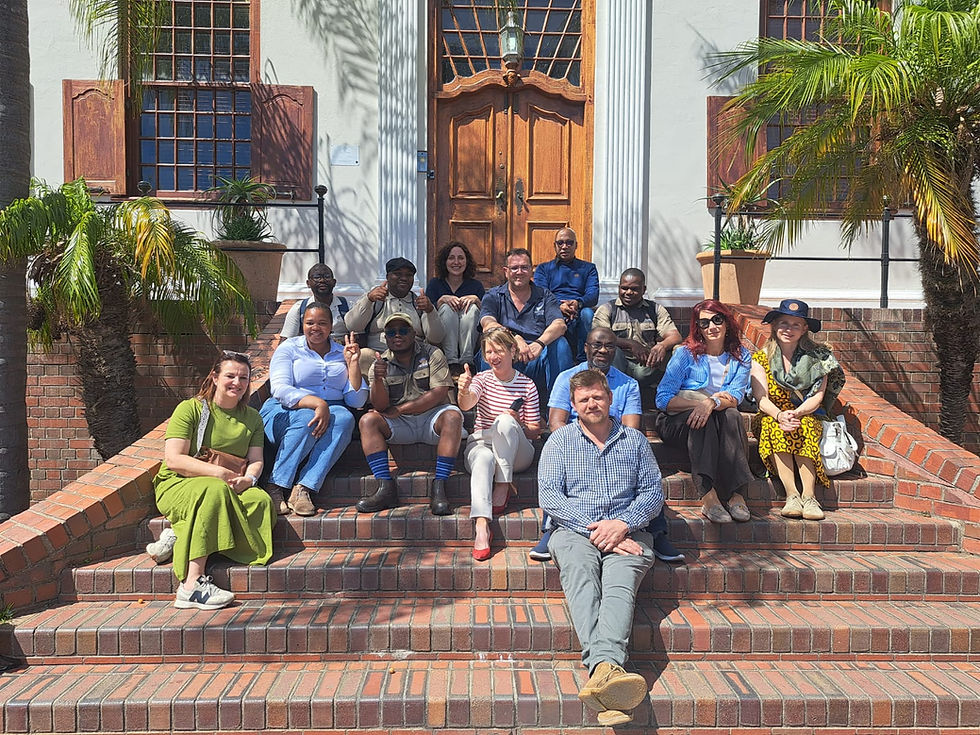CoVE South Africa Sustainability Conference: Looking Beyond 2025
- mcarstens1
- Oct 14, 2025
- 2 min read
On 7 October 2025, the EU-funded Centres of Vocational Excellence (CoVE) in Climate Smart Agriculture in South Africa convened its Sustainability Conference in Stellenbosch, South Africa.
The event, opened by the Dean of the Faculty of AgriSciences Prof Danie Brink, focused on planning for the future sustainability of the three regional CoVEs, established at Boland, Lovedale, and West Coast Colleges. With the project set to conclude in December 2025, discussions centered on how to ensure the continued impact of the CoVEs beyond the funding period. Each regional CoVE presented its recently developed business model to stakeholders, outlining strategic approaches to long-term sustainability and self-sufficiency.
The hybrid event welcomed participants from across the agricultural and vocational educations sectors. Key stakeholders in attendance included:
Government & Parastatals: Agricultural Sector Education and Training Authority (AgriSETA), Energy & Water Sector Education and Training Authority (EWSETA), Western Cape Department of Agriculture, Casidra, and Breede Olifants Catchment Management Agency.
Industry & Commerce: South African Chamber of Commerce and Industry (SACCI), NWK Limited, RedSun Raisins, Rand Water, Grow Fresh Produce Agents, and PUM.
Agricultural Enterprises: Living Hope Farm and Vegado Village Farm.
The project partners, Maastricht School of Management, Mendelu University, Stellenbosch University, AgriColleges International and Boland, Lovedale and West Coast Colleges also reflected on the achievements and progress made during the last three years.
Reflecting on the collaborative spirit of the week, Project Manager Sandra Adriaansens from the Maastricht School of Management stated, “It was truly inspiring to witness the remarkable progress the colleges have made in strengthening their leadership by positioning themselves as key players within their communities and among critical local and national stakeholders. Over the past days, I have seen a clear shift toward TVET entrepreneurial thinking, translated into concrete action plans that demonstrate how collaboration across most relevant sector stakeholders can drive sustainable, inclusive, and skills-oriented TVET training that genuinely responds to labour market needs.”
A sincere expression of gratitude to all the project team members as well as stakeholders which attended the activities of the week.







Comments